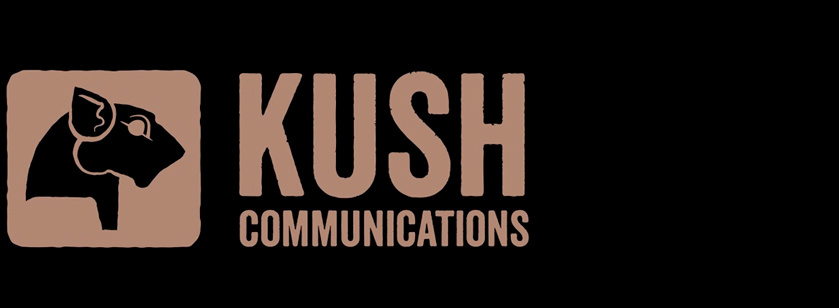THE MAKING OF THE HISTORY OF AFRICA
Background
Some years ago I visited the pyramids of ancient Sudan. I was doing some research for a book I was writing about the history of the country of my birth. On my return I asked my parents what they knew of Sudan’s historic sites. Not much, it turned out.
This was odd since both of them could tell you a lot about British kings like Henry VIII and key points in British history! Hardly surprising since they were the products of the British colonial education system.
If my well educated parents didn’t know enough about their own history, I thought, surely the same is likely to be true of many other Africans. As I talked to various people over the years, I discovered that this indeed was the case. And not just for the older generation.
A few years later I was at the Paris headquarters of the UN’s cultural and educational body, UNESCO.
On the bookshelves of its Ethiopian-born Deputy Director-General, Getachew Engida, I spotted a collection of volumes. I asked him what this was, he told me that it was the ‘General History of Africa’.
This, it turned out, is one of Unesco’s and the continent’s best kept secrets: Africa’s history written by African scholars.
The project was conceived in the early 1960s, during the period of rapid decolonisation in Africa. Some of the newly independent African leaders decided that, now they had decolonised their countries, they also wanted to decolonise their history.
Western historians had lamented the lack of written records in some African countries and had used this as a reason to legitimise neglect and oversight of Africa’s rich and complex history.
UNESCO helped them put together the project, recruiting 350 experts, mostly from across Africa and from a range of disciplines, to compile eight volumes, starting from prehistory and continuing to the modern era.
The eighth volume was completed in 1990. They’re now working on the ninth. After my initial conversation with Getachew, I suggested to him that I should try to bring the spirit of the volumes to life on our screens: a tv series about Africans’ history presented by Africans themselves.
Except now there was one big obstacle: I needed to raise funding for the series. This was made possible by the inspired leadership of Mostafa Terrab – Chairman of OCP. He is a Moroccan businessman who travels all over Africa and interacts with Africans from many walks of life. He immediately grasped the significance of what I was trying to do and offered me support. He said we should try to create a movement. And the rest as they say is history!
UNESCO headquarters in Paris, February 10th 2015: Launch of the TV series, ‘The History of Africa’.
The inaugural television series based on the General History of Africa volumes compiled by UNESCO has been made by renowned international broadcaster Zeinab Badawi of Kush Communications. It was first broadcast on BBC World TV in July and August 2017. The first series of nine one-hour episodes, ending around the 13th century, brings to the screen the fruits of a unique endeavour: The General History of Africa (the GHA).
The GHA was launched in the mid 1960s, during a period of rapid decolonisation in Africa. The newly independent African leaders had decolonised their countries after decades of oppression and now they wanted to reclaim their history. The UN’s educational, cultural and scientific body, UNESCO, acted as facilitator and convenor of this ambitious project on behalf on African nations. They scoured the continent of Africa for the best historians, anthropologists, archaeologists and other experts in their field. These academics – 80% of them from Africa – carried out painstaking research to bring us (so far) eight volumes of Africa’s history: from the origins of humankind to the modern era.
Zeinab Badawi – born in Sudan, educated at Oxford and London Universities – specialising in politics, history and anthropology – has written and presented ‘The History Africa with Zeinab Badawi’ working in consultation with UNESCO. This project has been made possible by the generous sponsorship of one of the world’s leading companies: Morocco’s OCP.
As a proud daughter of Africa it is my privilege to make the people of Africa proud of their rich and diverse history and heritage. This inaugural tv series is the first of its kind: it will bring to our screens Africa’s history interpreted and explained by African themselves.
Zeinab Badawi
‘The General History of Africa is the first truly international and multidisciplinary history of the continent. This project is not only a leading example of UNESCO action in Africa. It also provides a model to promote cooperation through activities based on the expertise of UNESCO’s different sectors in areas such as the writing of history, development of curricula, teacher training, informal education and the use of information and communication technology’.
Irina Bokova, Director-General of UNESCO
More info on UNESCO’s General History of Africa project
‘OCP is delighted to be the sponsor of the first televisation of UNESCO’s General History of Africa. It is an illustration of the role that Morocco is playing on the whole continent of Africa, through economic, political, cultural, educational and social ties with its fellow African states and people.
Africa is at last claiming its rightful place on the world stage and looks forward to an even brighter present and future but it can only do so by building on knowledge and understanding of its past.
The General History of Africa and its wider dissemination through this tv series marks a major contribution to education about Africa for Africans and non-Africans alike’.
OCP Chairman, Mostafa Terrab
As a proud daughter of Africa it is my privilege to make the people of Africa proud of their rich and diverse history and heritage. This inaugural tv series is the first of its kind: it will bring to our screens Africa’s history interpreted and explained by African themselves.
‘The General History of Africa is the first truly international and multidisciplinary history of the continent. This project is not only a leading example of UNESCO action in Africa. It also provides a model to promote cooperation through activities based on the expertise of UNESCO’s different sectors in areas such as the writing of history, development of curricula, teacher training, informal education and the use of information and communication technology’.
‘OCP is delighted to be the sponsor of the first televisation of UNESCO’s General History of Africa. It is an illustration of the role that Morocco is playing on the whole continent of Africa, through economic, political, cultural, educational and social ties with its fellow African states and people.
Africa is at last claiming its rightful place on the world stage and looks forward to an even brighter present and future but it can only do so by building on knowledge and understanding of its past.
The General History of Africa and its wider dissemination through this tv series marks a major contribution to education about Africa for Africans and non-Africans alike’.



